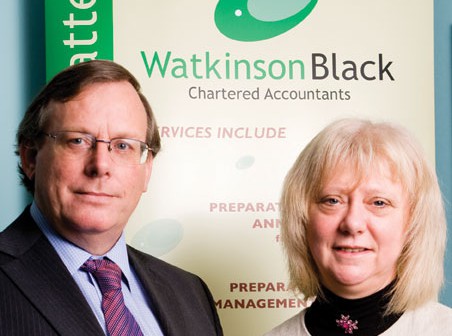by Dave Watkinson WatkinsonBlack
Now the festive season is over it’s time to get back down to work.
We are still busy sorting out the final 2015 tax returns that need to be submitted by the end of the month. But it is also time to look at the tax changes that will be taking place in April, one of the main one’s for many small companies being the change in the taxation of dividends.
From April, everyone will be entitled to receive up to £5,000 of dividends free of tax. Above that, dividends will be taxed at a rate of at least 7.5%. As that income has already been taxed at 20% within the company then this means that the effective tax rate will be about 27% even for basic rate taxpayers. This is a substantial increase in the amount of tax payable, but there are some things that can be done to reduce the impact.
Firstly, many companies operate from premises owned by the director/shareholder. Currently, rent is frequently charged at a nominal rate, or at a rate that will result in no profit or loss after taking account of interest charged on any loan taken out to buy the property. Consideration should now be given to ensuring that any rents charged to the company are at a commercial level. Be aware, however, that the tax office will most likely look at any increase in the level of rents charged very carefully.
Secondly, the £5,000 tax free allowance for dividends is per person. Therefore, if all the shares are held by one spouse then consideration should be given to transferring some of those shares to a spouse, thus ensuring that both allowances are utilised. Care must be taken, however, to ensure that any transfer is not caught by the “settlement” legislation.
Thirdly, if you are paying privately into a personal pension scheme out of net income then you should transfer those payments into a company pension scheme. Any contributions made, subject to quite substantial annual limits, will obtain full Corporation Tax relief and not attract any personal tax liability on the director as a benefit-in-kind.
Similarly, a fourth measure is to look at any life cover that is held. If you are currently paying life insurance premiums personally then you should consider changing these to a “Relevant Life Policy”. Premiums are then paid by the company and are not a taxable benefit-in-kind on the director. The policy is then held in trust, so any pay-out is made directly to the director’s dependents.
Finally, buy-to-let mortgages are increasingly available to limited companies. Therefore, rather than drawing a dividend to pay the deposit on a new buy-to-let property, the company could, instead, buy the property. This will avoid the dividend tax on the deposit but may result in additional tax later on. Do the maths!
WatkinsonBlack are pleased to advise on these and other matters. They have considerable experience in all areas of taxation and businesss services, including providing a very cost-effective payroll bureau service. If you want to arrange a no-obligation initial meeting on any taxation or accounting matter then please contact us. Please note that these ideas are intended to inform rather than advise and you should always obtain professional advice before taking any action.




